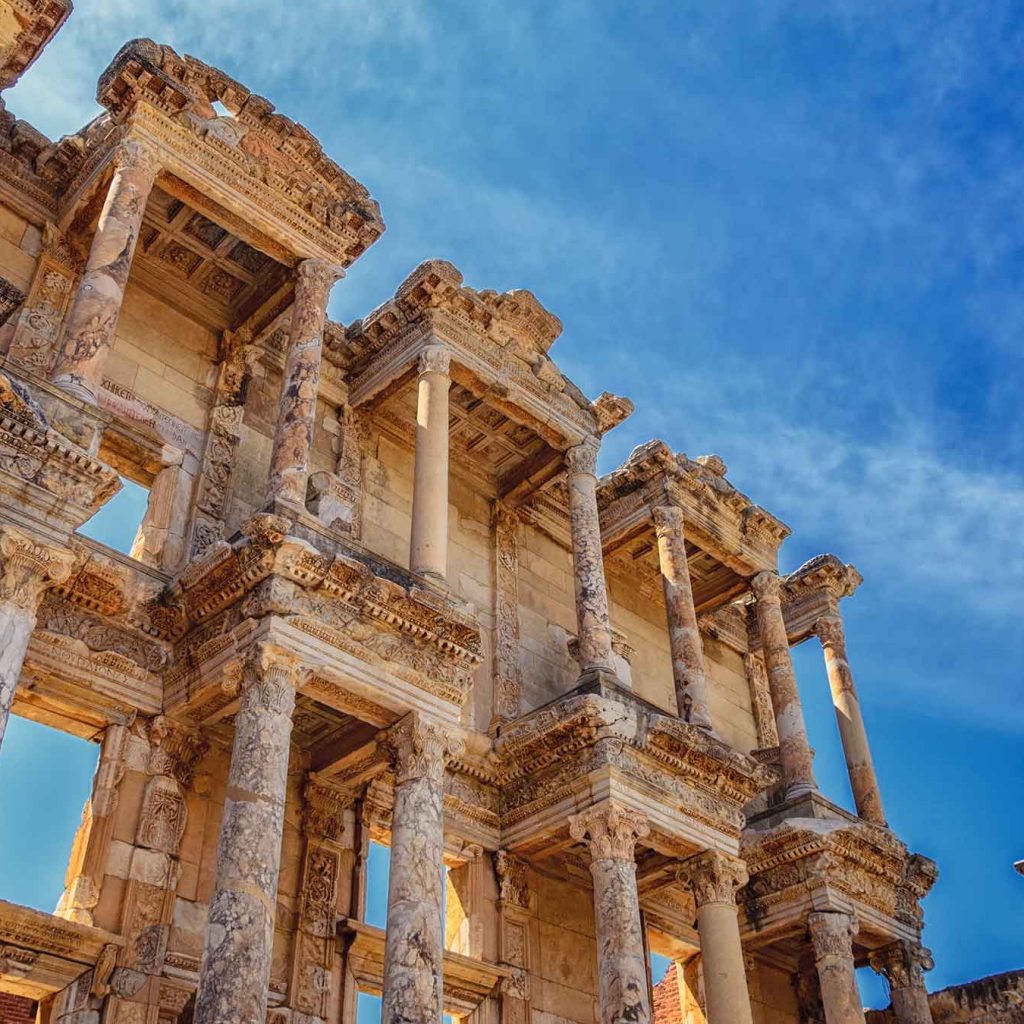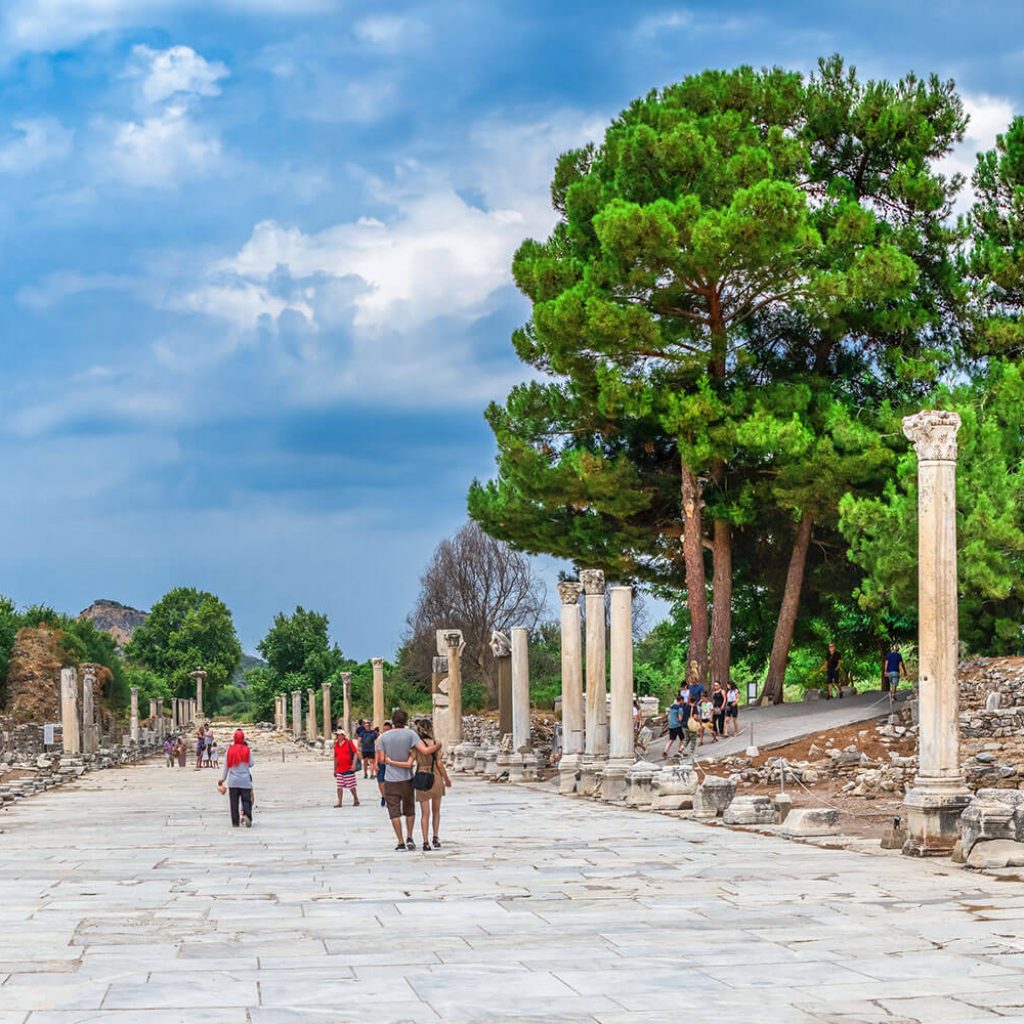Ephesus, a name that resonates with history, mystery, and grandeur, is a remarkable archaeological site located in modern-day Turkey. While many are familiar with its ancient significance, there’s a lesser-known side to Ephesus that hides in the shadows of its celebrated past. In this blog post, we will embark on a journey through the secret history of Ephesus, shedding light on little-known details and fascinating stories that make this ancient city an even more intriguing destination for history enthusiasts.
Ephesus: An Ancient Marvel
Before delving into its secrets, let’s establish the foundation. Ephesus, nestled near the western coast of Turkey, was an ancient Greek city that evolved into a prominent Roman metropolis. Its history dates back to the 10th century BC, and it served as a flourishing hub for trade, culture, and spirituality.
The Temple of Artemis
Ephesus was once home to the Temple of Artemis, one of the Seven Wonders of the Ancient World. This colossal structure, dedicated to the Greek goddess Artemis, was an architectural marvel adorned with intricate sculptures and columns. Though it no longer stands, its historical significance remains etched in time.

Ephesus Tour: Unearth the Enigma
When you embark on an Ephesus tour, you’re stepping into a world of secrets waiting to be unraveled. Here are some little-known details about this ancient city:
1. The Hidden Library
The Library of Celsus, an iconic structure within Ephesus, is well-documented. However, what many don’t realize is that there was a hidden library beneath it. This subterranean chamber likely housed scrolls and precious documents, preserved from the elements and prying eyes.
2. Laodicea Connection
Ephesus had a close relationship with the nearby city of Laodicea. One intriguing fact is that the Apostle Paul wrote a letter to the church in Laodicea, which is now famously referred to as the “Epistle to the Laodiceans.” Although the exact content of this letter remains unknown, its existence hints at the intricate connections between these ancient cities.
3. Mysterious Terrace Houses
Ephesus is renowned for its Terrace Houses, also known as “the houses of the rich.” These remarkably preserved residences offer a glimpse into the daily lives of the city’s elite. What’s lesser-known is the mystery surrounding the House of the Virgin Mary, believed by some to be the last residence of the Virgin Mary herself.
4. Temple of Hadrian’s True Purpose
While the Temple of Hadrian is often appreciated for its stunning façade and detailed reliefs, its exact purpose remains uncertain. Some historians suggest that it may have been a cultural and administrative center rather than a religious one.
5. Water and Sanitation Innovations
Ephesus boasted an advanced water and sanitation system, showcasing its forward-thinking urban planning. The city had an intricate network of aqueducts, fountains, and public toilets, highlighting the importance placed on hygiene and public health.

Ephesus Ancient City: A Multicultural Hub
Ephesus’ allure is not solely tied to its architectural wonders and historical enigmas. It was a melting pot of cultures, with influences from the Greeks, Romans, Persians, and Byzantines. This diverse blend of cultures is evident in the city’s architecture, art, and even the languages spoken by its inhabitants.
Ephesus was a vibrant hub for trade, and its bustling marketplace was known as the Agora. It was a place where merchants from across the Mediterranean would converge to exchange goods and ideas, making it a precursor to modern global marketplaces.
The Ephesus Theatre: Where Past Meets Present
The Ephesus Theatre, an iconic structure that could accommodate over 25,000 spectators, was a venue for both entertainment and political gatherings. As you stand in the midst of its well-preserved seats and gaze at the stage, you cannot help but feel the resonance of centuries of performances and speeches. It is a place where the past and present coexist in an awe-inspiring manner.
Ephesus: A City of Philosophy and Science
Ephesus was not merely a center for commerce and art; it was also a city of intellectual pursuits. The philosopher Heraclitus, known for his doctrines on the nature of change and fire, hailed from Ephesus. His contributions to early philosophy laid the groundwork for future philosophical inquiries.
The city also had a school of medicine, where scholars delved into the realms of science and healing. This emphasis on intellectual growth underscores Ephesus’s significance as a center of knowledge.
The Enigma of Ephesus Unveiled
Ephesus, with its well-documented history and enigmatic secrets, continues to captivate travelers and historians alike. As you walk through its marble streets, trace the steps of ancient philosophers, and stand in awe of its architectural wonders, you will sense that there is more to this ancient city than meets the eye.
When planning your Ephesus tour, take the time to explore the hidden corners and lesser-known stories that add depth to this archaeological treasure. It is a place where history and mystery converge, offering a richer and more profound understanding of Ephesus’s enduring legacy.
In conclusion, Ephesus stands not only as a testament to ancient civilizations but also as a testament to the inexhaustible mysteries that history conceals. It is a destination where the past and the secrets it holds are waiting to be unveiled by curious travelers and enthusiasts of the enigmatic.



Comment (0)